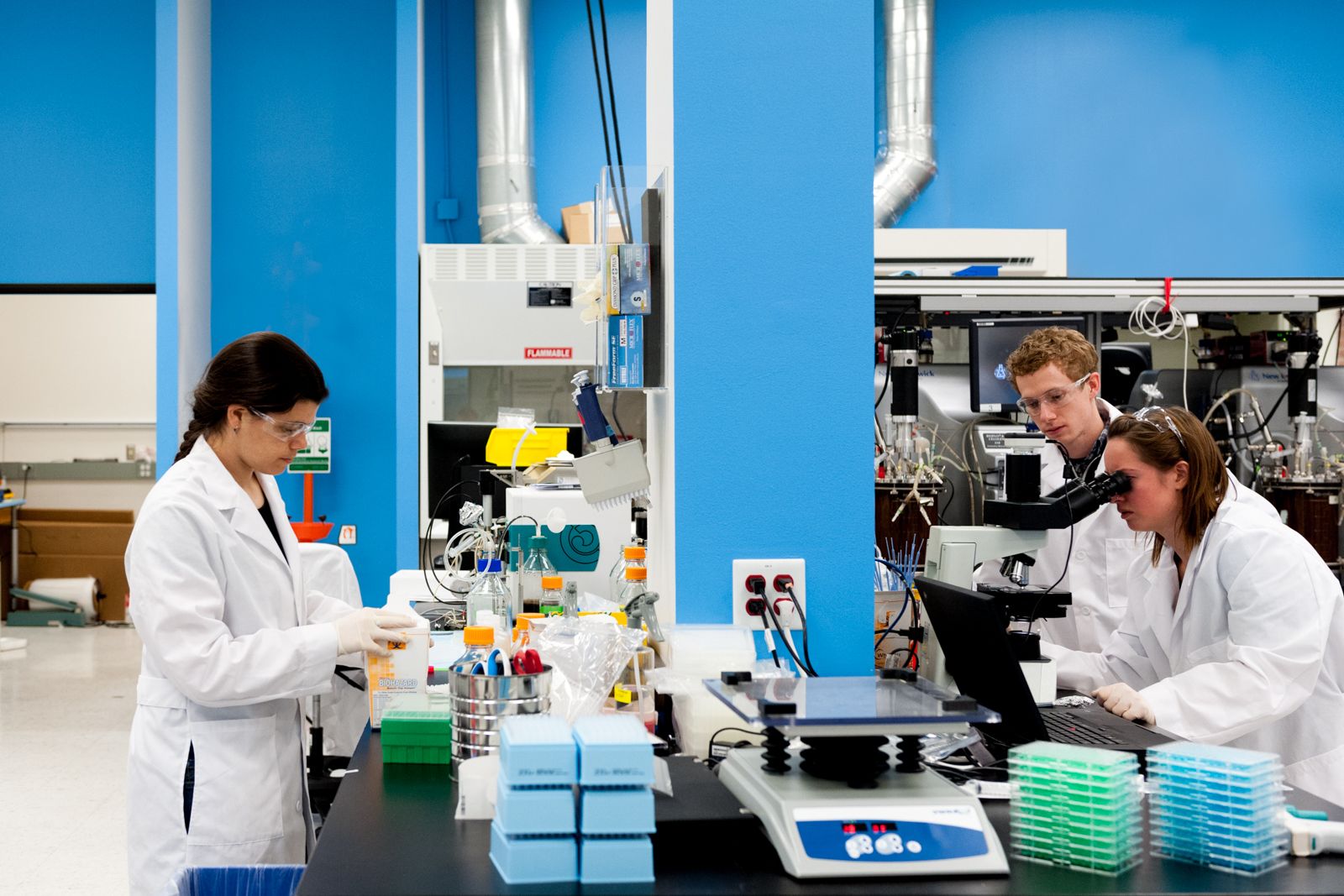Microbial DNA maker Zymergen recently announced a $42M Series A led by Data Collective, with a group of investors participating, including AME Cloud Ventures, Draper Fisher Jurveston, HVF, Innovation Endeavors, Obvious Ventures, True Ventures, and Two Sigma Ventures. The company raised a $2M seed round from undisclosed investors around 2013 when the company launched, according to TechCrunch, bringing the total raised to $44M.
The company is forging a unique path for itself in the industrial biotech industry through its use of robots to perform the artful and nuanced practice of creating microbes. According to its website, Zymergen was founded to pioneer an entirely new approach to the stalemate and sporadic progress that has characterized growth in the sector for many years.
“By applying the latest advances in biology, automation, machine learning, and data architecture we have developed new, more efficient, more reliable ways to optimize microbes for industrial fermentation,” reads Zymergen’s website. “We are able to design and create new microbial strains at unprecedented scale and speed by automating every step of the process, removing guesswork and human error.”
Bio lab automation has been one of the most rapidly developing emerging markets. Ginko Bioworks, for example, is a Boston-based biotech company that makes fragrances by manipulating yeast DNA through automation. The company secured a $9M Series A round in March 2015.
Zymergen ups the automation ante by taking its practices beyond the testing phase and into the manufacturing phase. According to Zymergen CEO Josh Hoffman, “A lot of lab automation is built with [testing] in mind.” Zymergen is likely the only company on the market that takes the process one step further by utilizing robots to assemble the DNA. Sticking the DNA across the cell membrane and into the bug itself completes the process and allows integration to occur.
The insertion of DNA into bacteria is not a novel process, having taken the market by storm roughly two decades ago. Now, almost every biotech company considers this process as a common practice. Zymergen, however, intends to use its robotic-reliant method for a variety of applications, including smells, flavors, pharmaceuticals, and industrial manufacturing.
Besides Zymergen, there aren’t many biotech companies making a play at this post-testing approach. Novozymes, a $1B revenue international biotech company, has also dabbled in using robots to take DNA insertion to the next level across a variety of industries.
Zymergen claims that it offers a one-of-a-kind product. “It’s the combination of Darwinian selection of genetically engineered microbes, plus machine learning, analysis, and automation that is unique,” says IndieBio partner and seasoned bio lab expert Ryan Bethencourt. “What Zymergen is doing is not unique, but it is very important.”
Zymergen’s novel and nuanced work is key for many sectors, including food and agriculture. The nearly uncountable numbers of bacteria that dwell in the soil around us may hold one of the keys to helping the agricultural industry scale up production to meet the world’s ever-increasing demand for food and fiber.
Just a decade or so ago, German scientists discovered an elusive type of bacterium that is an expert at converting nitrogen from the air into a component that plants can use even when oxygen is present. Normally, oxygen poisons the bacterial enzymes that churn out nitrogen, which is referred to as “fixing” nitrogen in the science world.
Unfortunately, the elusive bacterial strand, Streptomyces thermoautotrophicus, was lost along the way. If it can be rediscovered and its super powers engineered into plants that ordinarily lack the ability to fix nitrogen, farmers would be able to grow more crops using smaller amounts of fertilizer.
Today, countless university researchers and big ag companies are on fierce path toward discovering more applications for soil-dwelling bacteria. Some are aiming to use bacterial derivatives for genetic engineering to create plants that interact more effectively with beneficial soil microbes. The race to developing market-ready microbial cocktails for the food and agriculture industry is just getting started.
Have news or tips? Email [email protected].





